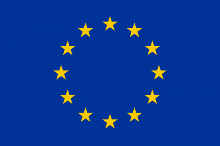Human well-being within planetary boundaries: Integrating climate policies with the UN 2030 Agenda

In 2015 the international community set up the Paris Agreement and the UN Sustainable Development Goals (SDGs). Together, they form an ambitious agenda for ensuring decent living standards for all while simultaneously protecting the climate and our ecosystems. However, five years into these agreements, reviewing the progress towards the targets is sobering, and an ambitious and integrated strategy is needed more than ever. In a modelling analysis covering the energy, land and climate systems as well as all 17 SDGs, we show that a combination of carbon pricing, international climate finance, national redistributive policies, and lifestyle change in high-income countries would succeed in meeting the 1.5°C target while simultaneously enable large progress towards the SDGs.
Bjoern's paper is available here.
 This event has been organised with the financial support of the European Union’s Partnership Instrument. The opinions expressed are the sole responsibility of the speakers and do not necessarily reflect the views of the European Union.
This event has been organised with the financial support of the European Union’s Partnership Instrument. The opinions expressed are the sole responsibility of the speakers and do not necessarily reflect the views of the European Union.
Bjoern has been a post-doctoral researcher at the Potsdam Institute for Climate Impact Research since 2018. He investigates how to integrate climate policies with the much broader agenda of the UN Sustainable Development Goals (SDGs), aiming to reconcile social goals like the eradication of extreme poverty with environmental sustainability. His recent work on these topics has been featured widely in German and international media. Bjoern was originally trained as an astrophysicist and has a PhD in Astronomy from the University of Cambridge.
